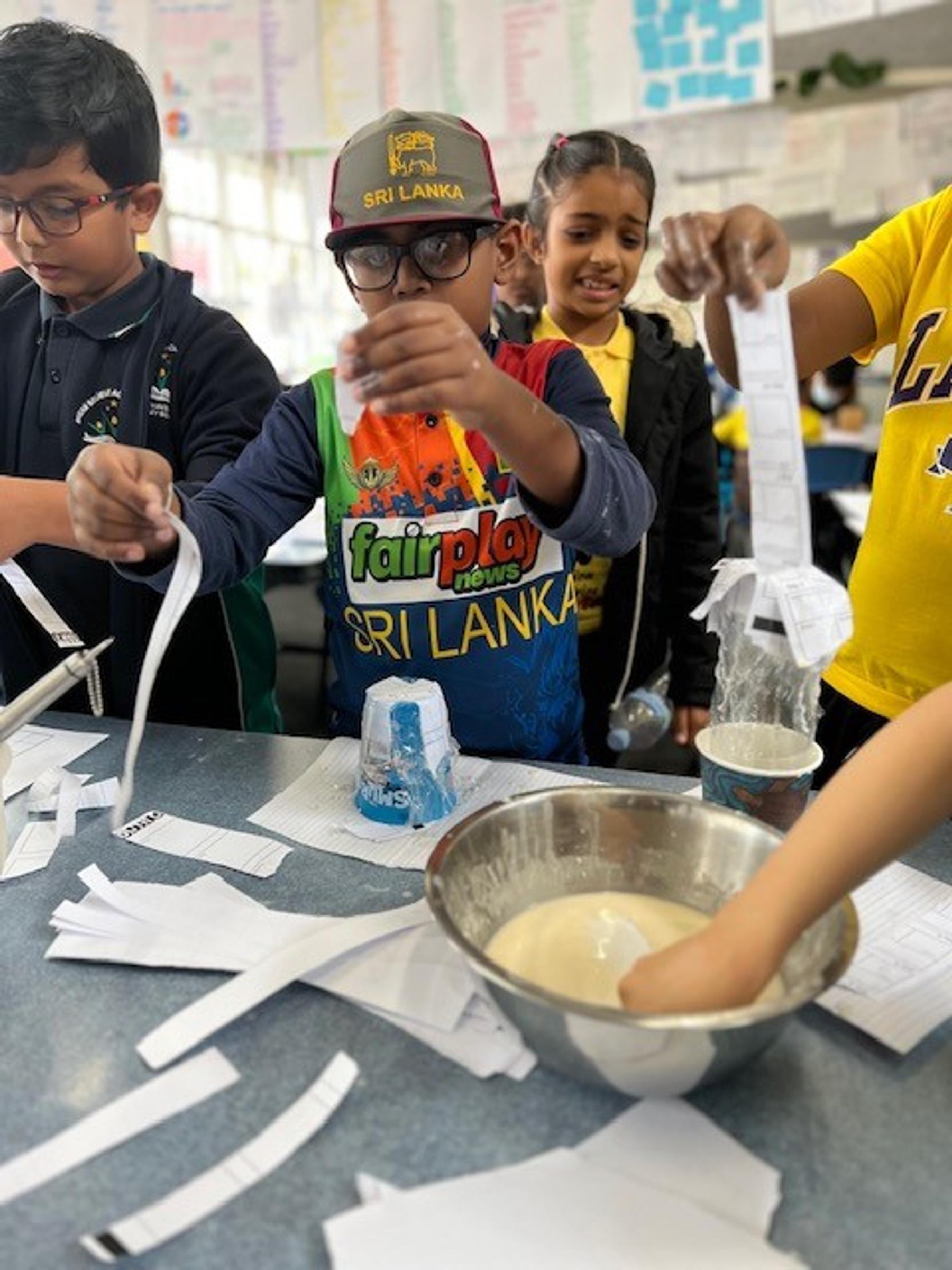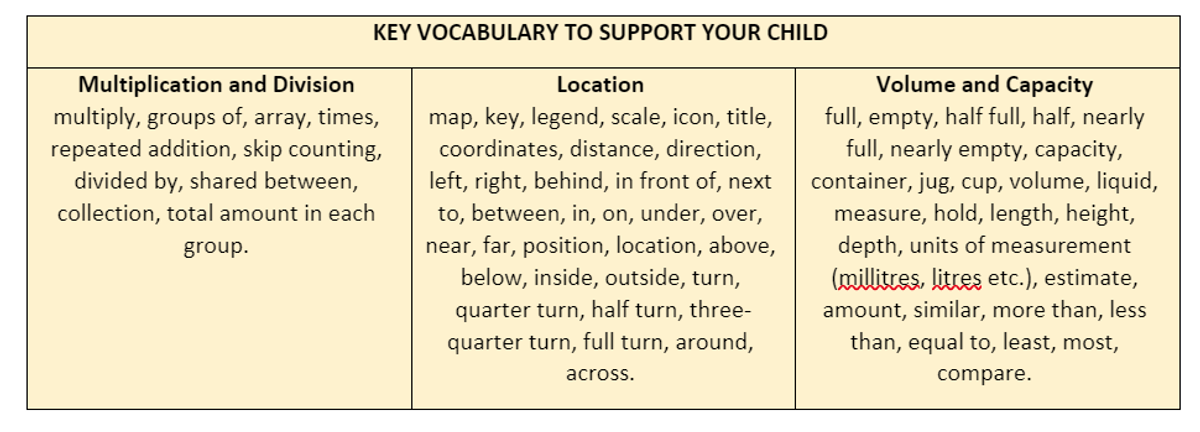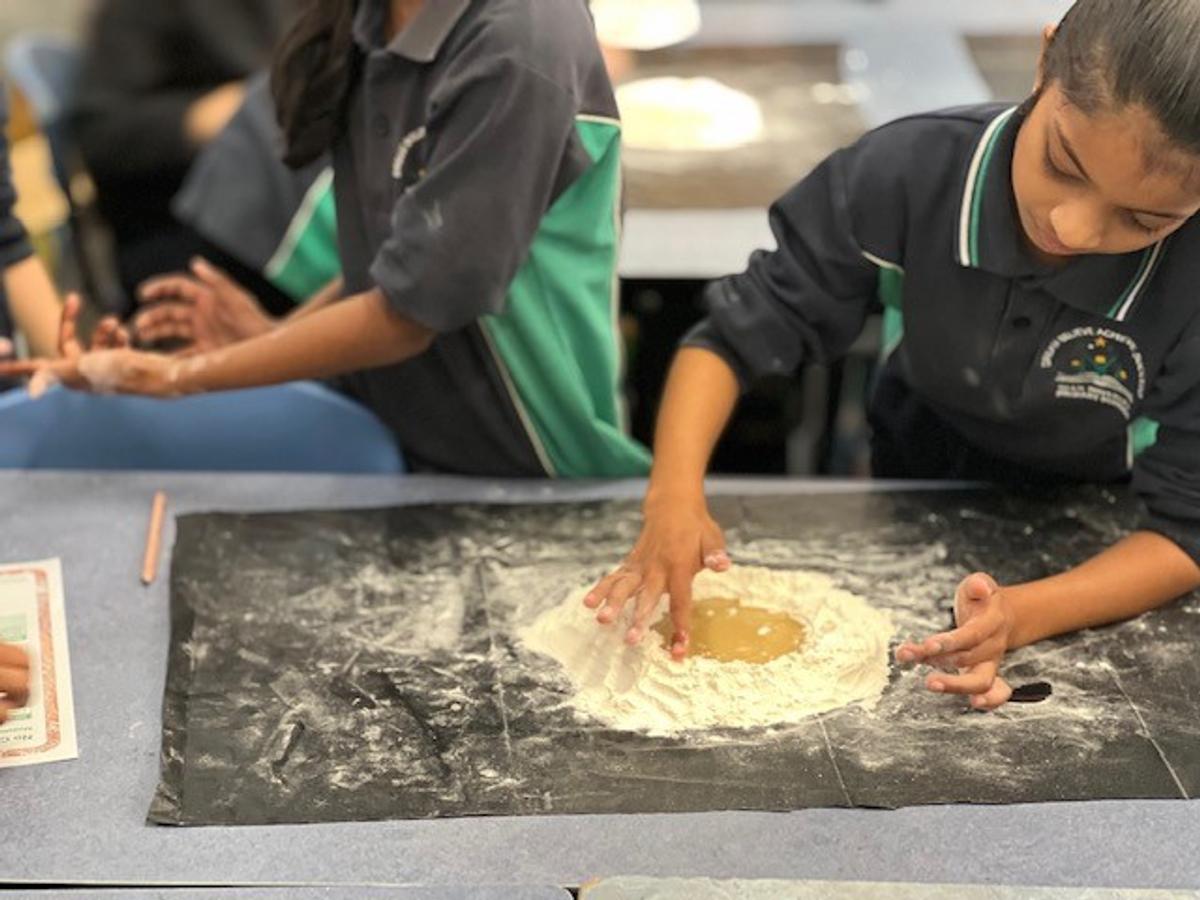MATHEMATICS

During Term 3, students will be engaged in a variety of learning activities aimed at expanding their mathematical skills. Let's take a closer look at what they will be learning in each specific area:
Multiplication and Division:
In this term, students will focus on multiplication and division, using various strategies to enhance their understanding. They will explore concepts such as repeated addition, arrays, and groups as effective methods for solving multiplication and division equations. By applying these strategies, students will gain a solid foundation in these fundamental operations. Additionally, they will have opportunities to solve worded problems and open-ended questions that have real-world applications. This practice will help them transfer their skills and apply mathematical thinking to practical situations.
Measurement and Geometry:
Another area of focus during Term 3 will be measurement and geometry. Students will build upon their earlier learning about area and perimeter and explore the concept of location. They will develop skills in generating directions by applying their knowledge of area and perimeter to navigate spaces. Additionally, students will learn to interpret maps, paying attention to key features and understanding the distances between landmarks. This exploration of measurement and geometry will enhance their spatial awareness and problem-solving abilities.
Volume and Capacity:
During Term 3, students will also delve into the realm of volume and capacity. They will have opportunities to compare and order shapes and objects based on their length, area, volume, and capacity. By using appropriate uniform informal units, students will develop a deeper understanding of how these attributes can be measured and compared. Additionally, they will explore the concept of mass by using balance scales to compare the weights of different objects. This investigation into volume, capacity, and mass will foster critical thinking skills and strengthen their ability to analyze and compare quantities.
By engaging in these focused areas of learning during Term 3, your child will develop a strong mathematical foundation and gain valuable problem-solving skills. These concepts and strategies will empower them to approach mathematical challenges with confidence and apply their knowledge to real-life situations.
To support your child’s learning at home, you could:
- Everyday Multiplication: Ask your child to help with tasks around the house that involve multiplication, such as setting the table with multiple place settings or distributing snacks equally among family members.
- Division Detectives: Encourage your child to become a division detective by spotting opportunities for division in their daily life. For example, they can divide a pizza into equal slices or share a pile of toys equally with siblings or friends.
- Kitchen Conversions: Involve your child in cooking activities that require measuring ingredients. Help them understand volume and capacity by discussing conversions between cups, tablespoons, and teaspoons.
- Water Experiments: Engage your child in simple water experiments that explore volume and capacity. For example, they can compare the amount of water different containers hold or estimate and measure how much water it takes to fill a larger container.


